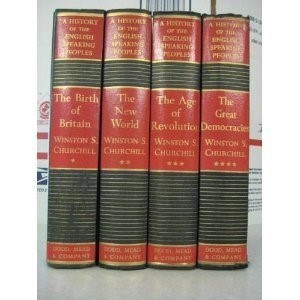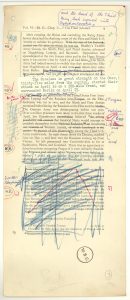
StoryLine
Churchill and the Avoidable War

Winston Churchill, Parliament Square, London © Sue Lowry & Magellan PR
January 1, 1970
Thoughts on Churchill by Richard M. Langworth
“Sir Winston’s grandson thought the late 1930s as fine an hour as 1940: a brave, lonely time when Winston Churchill fought “the policy of dodge and dawdle,” urging Britain to rearm, and stop the drift toward World War II. Churchill and the Avoidable War examines those years: his theories, and the degree to which he pursued them. It concludes that he was both right and wrong: right that Hitler was stoppable; wrong that he did all he could. Some claim Churchill was “for Hitler before he was against him.” He did admire the Führer’s political skill and dominance. Once, encouraged by a supine Foreign Office, he even hoped that Hitler might mellow. But in his broad understanding, Churchill was right all along: dead right.
In 1936 Hitler marched into the Rhineland, and two years later into Austria. Here Churchill’s voice was muted. Hoping for office, he chose not to buck his government. Then he began warning that Czechoslovakia was next. “Churchill and the Avoidable War brings out the pity of things,” the historian Manfred Weidhorn wrote: “that Hitler was ready to retreat from the Rhineland at the first sign of resistance; that the performance of the Wehrmacht in marching on Austria was out of a Viennese operetta (a fact that should have weighed heavily in Allied councils but seems to have been the equivalent of a military secret); that a credible coup to oust Hitler was preempted by an innocent Chamberlain at Munich.”
Munich was the key. Certainly it was the best opportunity to stand fast. Britain and France, goes the argument, could not have defended Czechoslovakia. But the Czechs had formidable defenses, Britain had a blockade-capable navy, France an immense army. Yes, the deal gave Britain another year to arm. But it also gave Germany another year, and the Germans were far more dangerous in 1939. Churchill also worked to bring in the Soviets and Americans. In 1936 he told Russian Ambassador Ivan Maisky, “We would be complete idiots were we to deny help to the Soviet Union at present out of a hypothetical danger of socialism which might threaten our children and grandchildren.” Harold Nicolson wrote: “Winston takes the line that the main enemy is Germany, and that it is always a mistake to allow one’s enemies to acquire even unreliable allies.” Alas America was also considered an unreliable ally, and Roosevelt’s offer to help save the peace was rejected. Churchill was astonished: “To wave away the proffered hand stretched out across the Atlantic leaves one, even at this date, breathless with amazement.”

2024 International Churchill Conference
“History doesn’t repeat,” Mark Twain said, “but it sometimes rhymes.” We cannot say what Churchill would do today. What we can do is learn from his example, and his instincts: to know when discretion takes priority over action, when diplomacy is appropriate, and when to deploy a bluff. Yet heaven knows what today’s world would look like without him.”
Richard M. Langworth CBE (richardlangworth.com) is senior fellow for the Hillsdale College Churchill Project (winstonchurchill.hillsdale.edu) and the author or editor of six books on Churchill. His latest book is Churchill and the Avoidable War, available as a Kindle e-book or illustrated paperback from Amazon UK and Amazon USA.
Subscribe
WANT MORE?
Get the Churchill Bulletin delivered to your inbox once a month.



